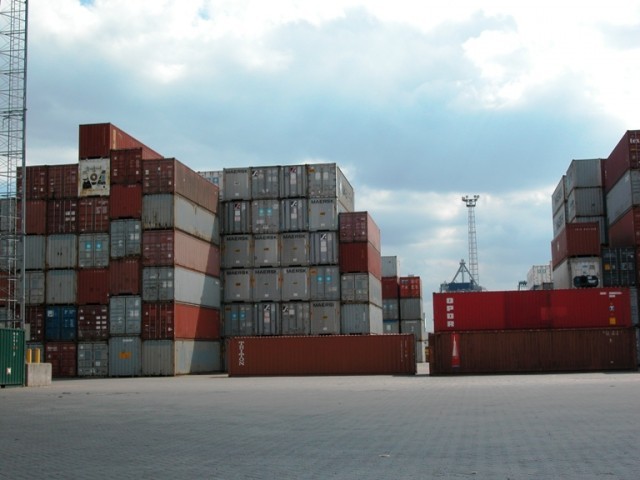
KARACHI: Despite having the capacity to export over $1.63 billion worth of goods to Brazil, Pakistan’s exports to the world’s seventh largest economy are embarrassingly low at just $71 million, according to a latest research report.
The research report is published by the Pakistan Business Council (PBC), a not-for-profit business advocacy forum that represents the country’s 55 largest businesses.
Analysing the trade relationship between Pakistan and India
Its findings show miserable performance of not only exporters, but also government institutions that are responsible for promoting the country’s exports.
Like many other countries, Pakistan’s exports to Brazil have remained range-bound (from $71 million to $93 million) for the last five years. In fact, exports in 2015 ($71 million) remained lowest since 2011 when the country exported goods worth $80 million.
Pakistan and Brazil have cordial bilateral relations – the country is the first business partner of Pakistan among South American nations – but the volume of trade between the two countries was just $369 million in 2015. It remained heavily in Brazil’s favour with $298 million exports to Pakistan last year.

The worst part of the statistics is that Pakistan’s top exported good to Brazil has been cotton, which cannot be considered a finished product. Furthermore, even cotton exports have been plummeting from $23 million in 2011 to just $9 million in 2015, down by a massive 61%. Other mentionable export products are textile made-ups, leather products, sport goods, surgical items and cutlery.
However, Brazil’s exports to Pakistan have jumped significantly from $177 million in 2011 to $298 million in 2015. Interestingly, the South American nation’s cotton exports to Pakistan jumped from $56 million to $81 million in the last five years. Brazil’s exports to Pakistan mainly consist of cotton, animal or vegetable fats and oils, oil seeds and oleaginous fruits, machinery and iron and steel.
Failing policies
The pro-business PML-N government has failed to arrest the fall of exports, even failing to maintain them at the same level as that in 2013, prior to the transfer of power. Part of it could be attributed to a global recession that has plagued nearly all markets.
Pakistan’s trade deficit widens 27.3%
Pakistan’s exports fell to an eight-year low of $20.8 billion despite getting the Generalised System of Preferences (GSP) Plus trade benefits in the 28-nation strong economic bloc of the European Union (EU).
Even the IMF has shown concerns on Pakistan’s declining exports. IMF resident representative for Pakistan, Tokhir Mirzoev, in August said that the “decline in exports is a major source of concern”.
Soon after taking charge, Commerce Minister Khurram Dastgir Khan vowed to do everything in his power to increase exports, including monitoring commercial attachés’ performance in different embassies of Pakistan. But exporters still question the competence of many commercial attachés and blame lack of support from most Pakistani embassies in exploring new markets as the key hurdle to branching out.
Now that the government is in its fourth year, Dastgir’s performance is definitely questionable. His dream of having more liberal trade with neighbours, especially India, was dashed in the very first year.
It is not just about Brazil or any South American country; Pakistan’s exports to almost every other country are under pressure. Apart from security problems and power crisis, there is something wrong with the policies of prominent ministries of this government because of which exports are continuously declining. One simply cannot blame the global economic slowdown for the continuous fall in exports.
With just more than a year in hand before the next general elections, the government needs to find out what it can do to give a boost to exports. The government cannot, in good conscience, justify faltering performance by blaming external factors.
The government’s promises of enhancing industrial capacity and resolving the energy crisis remain unfulfilled. High tariffs, despite low oil prices, and stuck refunds with the tax machinery are just the final nails in the coffin. Maybe, this is where the government can start, instead of simply blaming the economic slowdown and sidestepping one of its key responsibilities.
THE WRITER IS A STAFF CORRESPONDENT
Published in The Express Tribune, October 29th, 2016.
Like Business on Facebook, follow @TribuneBiz on Twitter to stay informed and join in the conversation.














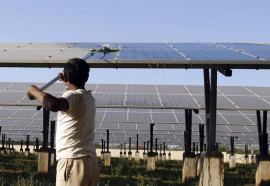
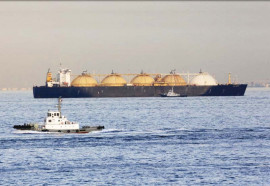
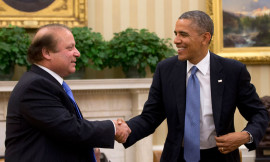
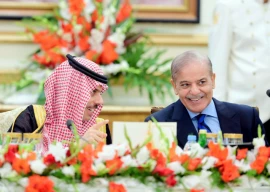



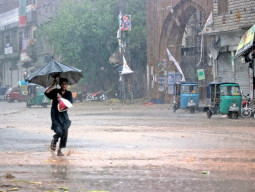











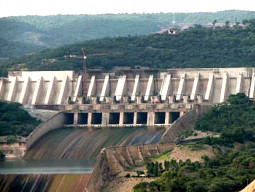
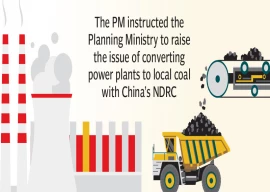








COMMENTS (1)
Comments are moderated and generally will be posted if they are on-topic and not abusive.
For more information, please see our Comments FAQ